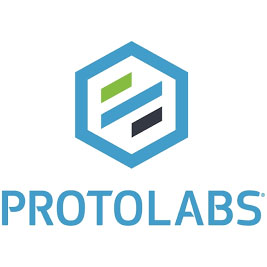Category: Independent research on Protolabs
Protolabs: Doubling Down on Injection Molding & CNC Machining
 Rather than call out its core manufacturing services as legacy businesses, as the previous management team did in the past, Protolabs is doubling down on the value it can provide in each of its two key manufacturing services: injection molding (IM) and CNC machining. On the IM side, Protolabs is now offering seven-day turnaround time in for mold creation, down from 14 days previously. It has also vowed to compete more rigorously for business with longer lead times. This is in contrast to the past, when Protolabs focused almost exclusively on prototypes and part production runs with quick turnaround times. The company intends to use its internal factories primarily, as well as partners to optimally schedule part production.
Rather than call out its core manufacturing services as legacy businesses, as the previous management team did in the past, Protolabs is doubling down on the value it can provide in each of its two key manufacturing services: injection molding (IM) and CNC machining. On the IM side, Protolabs is now offering seven-day turnaround time in for mold creation, down from 14 days previously. It has also vowed to compete more rigorously for business with longer lead times. This is in contrast to the past, when Protolabs focused almost exclusively on prototypes and part production runs with quick turnaround times. The company intends to use its internal factories primarily, as well as partners to optimally schedule part production.
Similarly in CNC machining, formerly known as First Cut, the company has also achieved success with quick turnaround times, but will now be focused on longer lead time business, as well as leveraging its Hubs partner network to create more exotic parts that cannot be produced in house. The overwhelming majority of revenue from Hubs comes from partners with expertise in CNC machining, which enables Protolabs to offer customers a wider range of volume pricing, part tolerances, part complexity and finish options, such as nickel and black oxide plating. The new strategy also enables Protolabs to make a broader outreach to procurement and supply chain teams, in addition to its core community of product developers.
Another strategic shift for the company is more closely monitoring the profitability of each of its key segments, which include 3-D printing as well as sheet metal fabrication. 3-D printing, which contributes about 14 percent of revenue, is known to be less profitability than CNC machining and injection molding. The company operates several factories, and it is likely that the operations will be scrutinized more closely. Similarly sheet metal fabrication contributes less than five percent of revenue, and an undisclosed level of profitability.
A key advantage that Protolabs holds over digital brokers that claim to offer similar services, is that many companies prefer to deal directly with their manufacturing service provider, particularly for proprietary projects that require close manufacturing tolerances. The ability to visit Protolabs’ facilities and “kick the tires” is a key advantage for the company.
